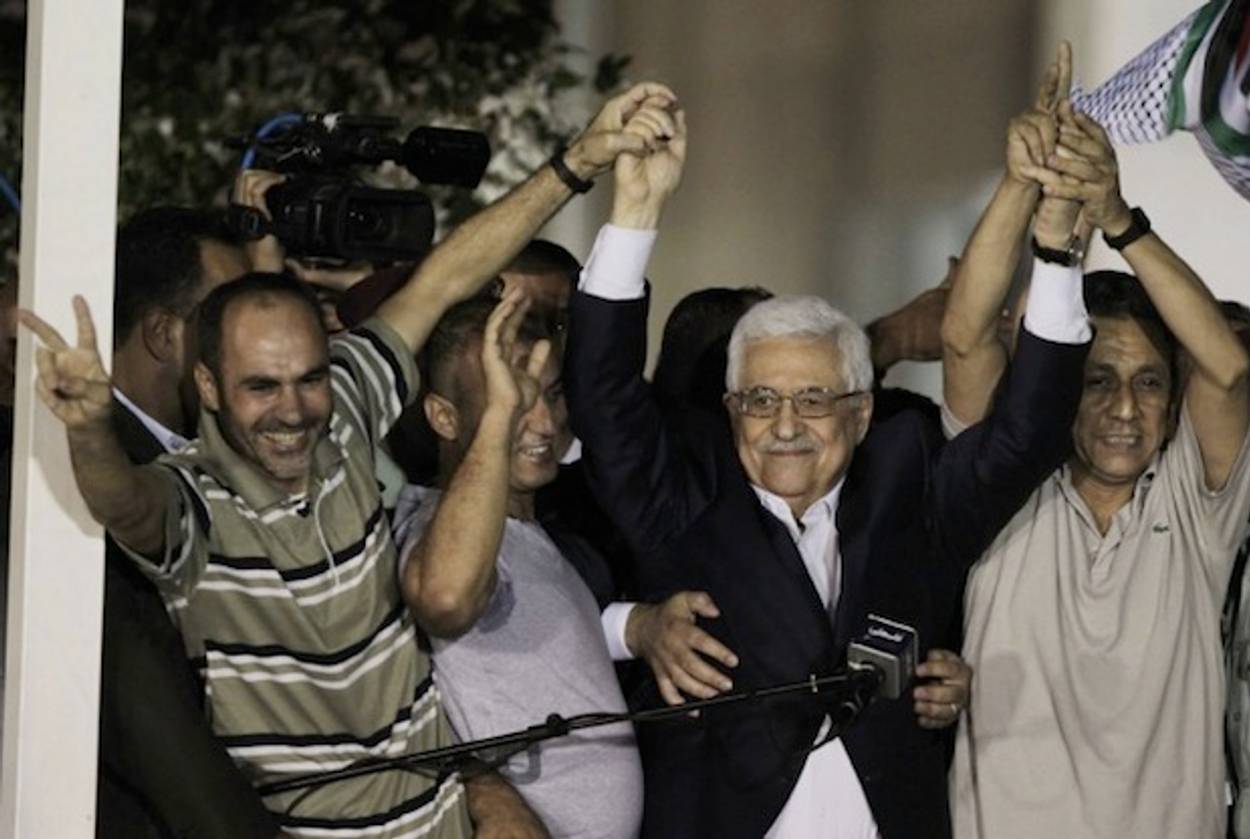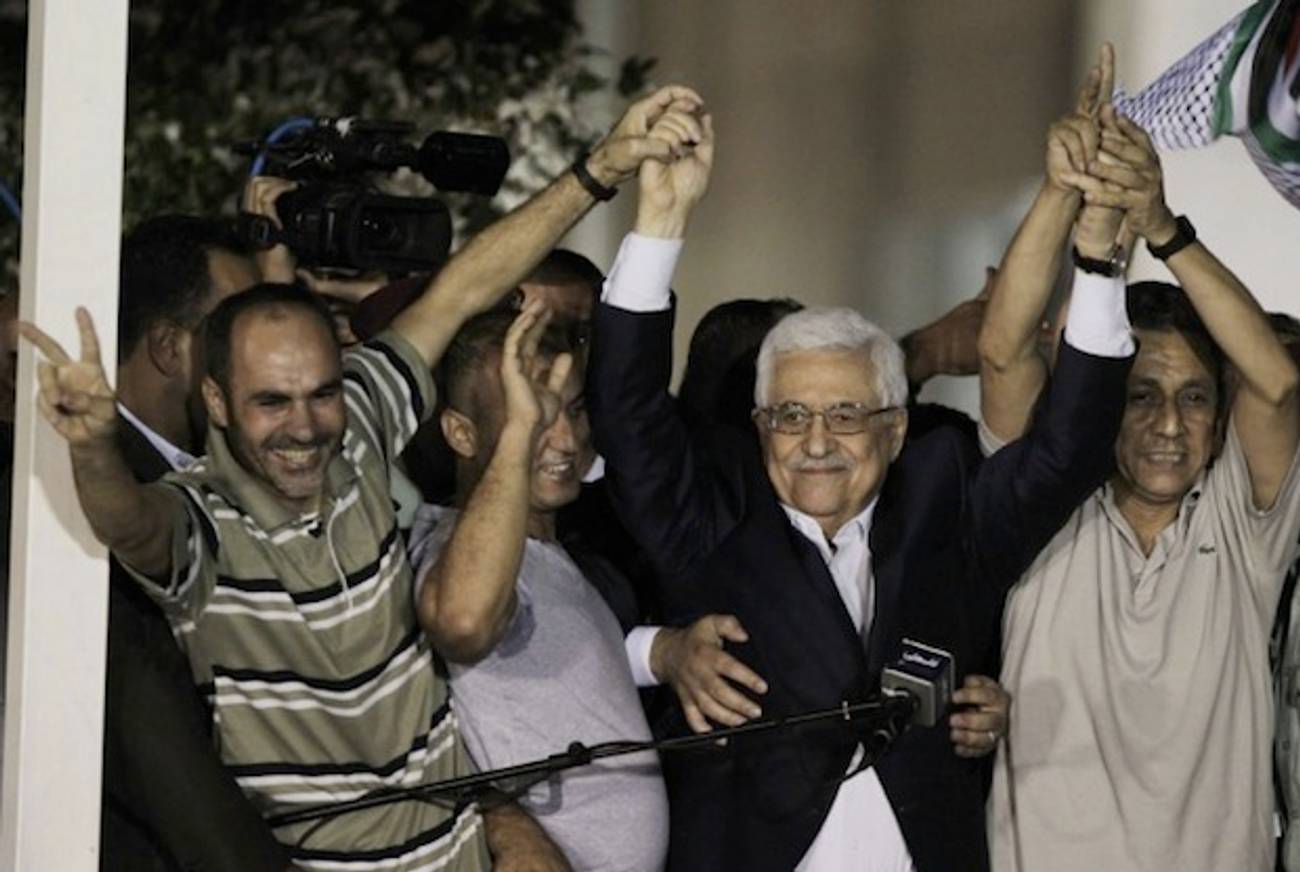Settlements Are Bad for Peace, But So Are Rockets
Palestinian prisoner release celebrated with ceremonies, rocket fire




Celebrations were lively in Gaza and the West Bank last night following the release of 26 Palestinian prisoners, the first set in a phased and controversial release of 104. How lively? Palestinian Authority President Mahmoud Abbas hosted 11 of them at his compound in Ramallah last night as a crowd gathered below to celebrate. Meanwhile, in Gaza, where the remaining prisoners went, amid the merrymaking, two rockets were fired from Gaza. One was believed to have landed in Gaza, the other in an open field in Israel.
Hours later, just before the Israeli and Palestinian sides were set to meet in Jerusalem, the IDF reportedly struck back against concealed rocket launchers in northern Gaza. Since last year’s ceasefire went into effect, rocket fire from Gaza has been reported only a handful of times. Ordinarily, this would be reassuring were the latest rockets not symbolically pegged to both a prisoner release and the resumption of peace negotiations, which remind Israelis what withdrawing from southern Lebanon and Gaza (ostensibly for peace) has accomplished in the past. In its campaign for peace, Israel also withdrew from Sinai, which, while not necessarily a frontier of pervasive goodwill, has devolved into the Wild West with threats of and actual rocket fire aimed at Eilat as recently as yesterday.
As many fixate on the deeds of the criminals released by Israel, most of whom were put in jail for murder, it should register that releasing prisoners was not Israel’s only option to restart negotiations. To emphasize this point perhaps, the Israeli government has been unveiling a series of plans for new homes in areas that, while likely not in what would be the future Palestinian state, are settlements nonetheless. News of these plans have consolidated into some idée fixe among Netanyahu-doubters, who see it as proof of Bibi’s intent to torpedo peace talks.
But if unveiling new plans to build homes in areas that will part of Israel in a peace deal is a symbolic slap in the face to peace, let’s remember that rocket fire is actual war. As Bibi works perilously to placate his pro-settlement governing partners on the right and within his own party as well as a Palestinian leadership that needs to look strong, a balance between two incompatible forces is trying to struck.
Over at the Times of Israel, David Horovitz argues compelling that Netanyahu’s strategy has already failed:
Netanyahu is seeking the best of both worlds — trying to keep the international community onside, and not alienate the Israeli right. But he’s getting the worst of both worlds. He’s lost the EU, and he’s losing control of the Likud. Seeking to curry favor but refusing to make vital strategic choices, this week he has again contrived to subvert Israel’s own interests, and still wound up looking like the bad guy.
Adam Chandler was previously a staff writer at Tablet. His work has appeared in the New York Times, the Wall Street Journal, the Atlantic, Slate, Esquire, New York, and elsewhere. He tweets @allmychandler.